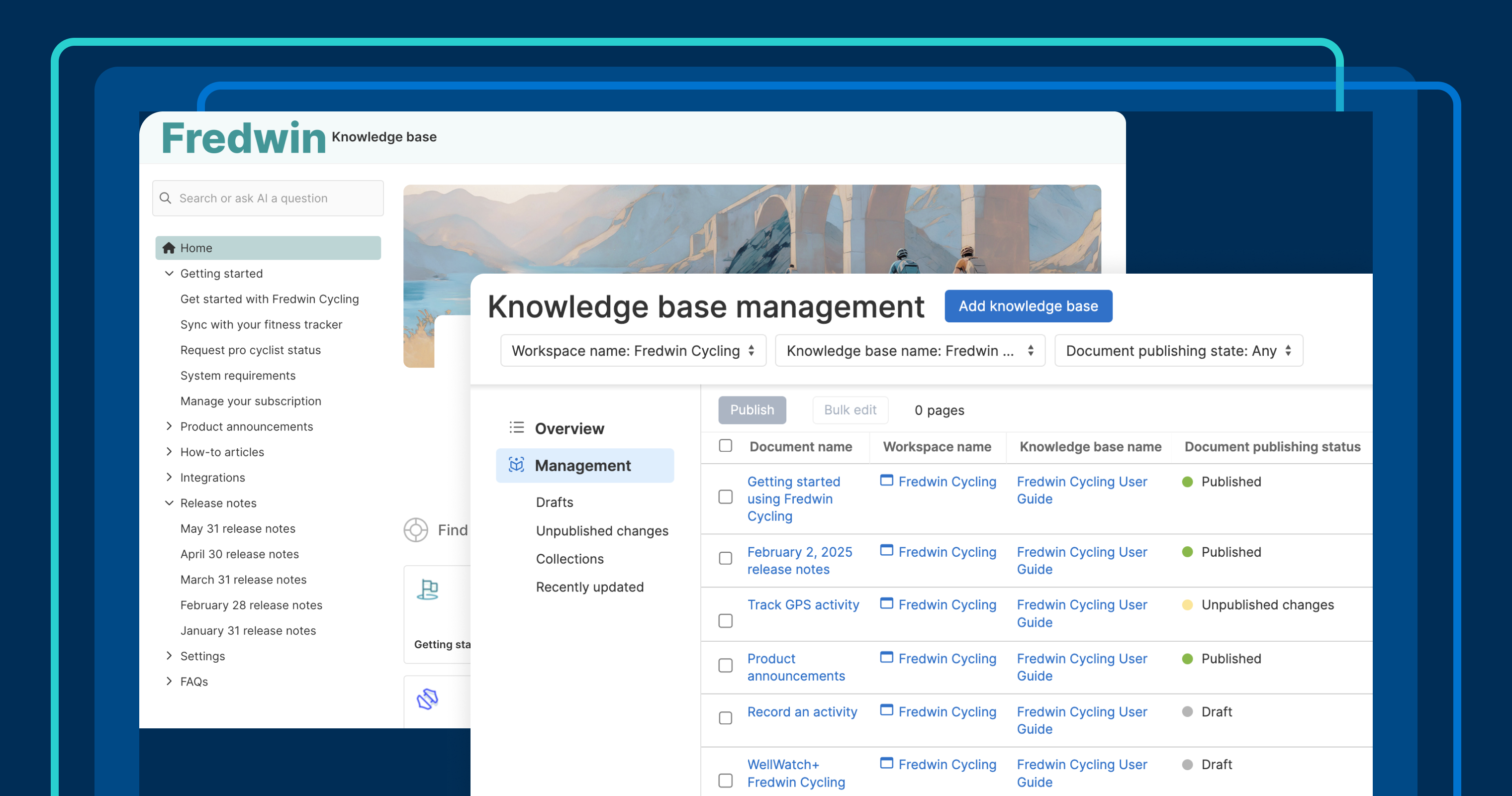marketing team refuses to do our projects, second thoughts about a new job, and more
This post was written by Alison Green and published on Ask a Manager. It’s five answers to five questions. Here we go… 1. Our marketing team refuses to do projects for us, then complains if we do them ourselves I’m one of several who create new educational resources for our target audience. Like most companies, we have a graphic design/marketing department that designs and approves anything that’s going […]

This post was written by Alison Green and published on Ask a Manager.
It’s five answers to five questions. Here we go…
1. Our marketing team refuses to do projects for us, then complains if we do them ourselves
I’m one of several who create new educational resources for our target audience. Like most companies, we have a graphic design/marketing department that designs and approves anything that’s going to be seen by the public. Well, they’re supposed to.
Most of my work is in response to current events, so I might make a new guide for our customers who want to learn more about XYZ. I’ll do the research and most of the formatting, and I’m supposed to send it off to the marketing department so they can make it look nice and uniform with our branding before advertising/publishing. Makes sense!
Not once have they ever “had time” to work on my team’s products. We always end up reformatting off of a years old template so we can get things out in time. We then get grumbling complaints from the marketing department that we didn’t do it right. But of course we didn’t! We don’t even have access to Adobe Suite, let alone the training to do actual graphic design!
This is not a timeline issue either; we always send out heads-up and check-ins on these projects weeks or months before we need to deliver them. They don’t respond, say they don’t have time, or send an older version of the product for us to update ourselves.
Things came to a head this year. The marketing team was increased by several new positions. I thought for sure this would solve the bandwidth issue. We held several meetings — at the marketing department’s request — to go over our needs for the upcoming year. A month later, a company-wide email goes out stating that we need to submit a form to request the marketing team’s services. All forms for every project in the next calendar year had to be submitted by the end of the week (it was a Wednesday). Any project that did not have a form submitted by then was “not guaranteed service,” whatever that meant. The form specified that projects that had previously been met about or agreed to would still need a form to be eligible for “services.” Great. So we redo all the work we did preparing for those meetings months ago, throw it in these forms, and get them in by the deadline. We covered as much as we could think of since we effectively had to plan a year’s worth of programming in three days.
Today I received word that a team member reached out to the marketing team to follow up on one of these projects. This is a large project that will require a lot of new assets and copy. We’ve done what we can, and provided nearly six months notice. They were told that this project could not be taken on by the marketing team as they’re “busy reviewing the form submissions from earlier this year.”
I have gone as far as escalating this issue to the CEO in the past. The projects I’m working on often come directly from them, and so I report these struggles all the way up the chain. Nothing has ever been done about it no matter how many times they agree with me that it’s “necessary.” I feel crazy and don’t know what communication strategy could possibly make a difference here. Please help!
You need to escalate it again. When whoever you escalate it to agrees that some kind of intervention is “necessary,” you should say, “Can we talk through exactly what the next steps are? In the past there’s been general agreement that it needs to change, but it hasn’t been resolved. I’m concerned that everyone agrees this is a problem, but it doesn’t get fixed and it continues on.”
You could also try saying that since you can’t get what you need from the marketing team, you want to be able to start sending work out to an external designer. Who knows, maybe they’ll let you — in which case, your part of this could be mostly solved. If they say you can’t do that, then you can say, “If that route isn’t possible, then can you intervene with the marketing team so that they will agree to do the work we need? Or is there a third option I’m not thinking of?”
Worst case scenario, continue with doing their work yourself (as you have been) and when marketing grumbles about how it looks, you can say, “I agree, I would have had your team do it but you continually say you’re not available. Given that, what do you suggest we do differently?”
I do want to be clear that none of these may solve the problem if your senior management is unwilling to act, but they’re all reasonable routes to try. (I also am assuming that you’ve sat down with the head of the marketing team directly and talked through the issues you’re having. But if for some reason you haven’t done that, that would be step one.)
2. I’m having second thoughts about the new job I’ve already accepted
I was offered a job in January with a partner organization after a quite long recruitment process (I had started interviewing when it seemed my current role was more at risk; now it is safer). I signed the offer letter, pending contract negotiation, with a start date of May 1. I had been very undecided about taking the job, but I thought the decision would be better taken with the contract in hand and everything on the table. The new role has been sending welcome emails about onboarding, pretty much since January. It’s been an excruciatingly busy time at my current role, and to be honest I was slightly too stressed to think much about it. I have to give my formal notice today, or at least this week. Last week I asked for a delayed start date — mid-May — and they said yes. (They still haven’t sent a contract.)
I know if I pull out of the new job now it will absolutely burn a bridge with a close partner organization, and with people I will have to see/work with regularly. But having made the decision to leave almost by omission (which is absolutely my own fault), I don’t want to leave. I love my colleagues, they have been nothing but supportive, I really like the organization, and my manager is wonderful and kind. Even through all this leaving chaos he has been kind — he’s said that after I give my notice, if at any time I feel I change my mind and want to stay, that’s fine (and welcome), until I actually leave.
I have no clue what to do. I am not sure why I’m finding this so difficult (the new job is more money, a decent promotion, and likely less stressful than my current job), but for the last weeks I’ve been having near-panic attacks thinking about leaving. I feel a lot of shame about the way I’ve handled this, with regards to both sides, and I am not sure what to do — whether it’s better to burn that bridge (and maybe regret not trying something new?), or just try to own the decision and go. My current role won’t be able to be recruited (we’re in a financial crunch, and there’s a hiring freeze), and I’m dreading telling colleagues in other teams that the work we’ve been doing together, that my role supports, will now no longer be happening. (Slightly tortuous analogy, but say we’re a teapot company, and I’m one of three people liaising with the international teapot convention to promote our teapots, with primary responsibility for red teapots. Now our teams working on red teapots will have less support, and the red teapot parts of the international teapot convention will not have our organization’s participation).
You haven’t really said much about why you’re suddenly reconsidering the move! Is it just that you’re feeling sad about leaving a job and people you like (which is very normal, even when leaving is the right move), or are you have doubts about the new job/company/manager? To figure this out, I think you’ve got to really into that more in-depth and sort out whether this is fear of change or if something about the new job is giving you pause. If it’s that you accepted the new job solely because you thought you needed a new job, and now you realize that you don’t … well, it’s not too late to undo that.
If it’s really just that you dread telling people you’re leaving … that’s not a reason not to go. But if leaving is no longer in your best interests, that’s a whole different thing. You’ve just got to figure out which it is.
3. Should I escalate my coworker’s misuse of a contact list?
I run a pretty popular newsletter out of our overall company. Mine happens to be tailored to specific topics and has a few different versions — for anonymity, let’s say they’re all about llamas, and each version is about a different aspect of llamas, like grooming, feeding, health, etc. A bunch of people run various newsletters out of the same account of the software we use because at one point, we were all in the same department. This particular coworker has moved to a different department, but still uses that account because her contact lists are still housed there and she still has to send her same newsletter notices out. It’s never been an issue — we all do our own thing with our own lists and leave everything else alone.
I recently discovered that she sent one of her notices to her own list and one of my lists because the topics somewhat overlapped and her lists don’t have many subscribers. Say one of mine focuses on grooming, but only on specific brushes. She was sending out a grooming newsletter notice, and wanted it to get to more people, so she included my contact list as well.
I’m … really uncomfortable with this. It’s technically within the law because the same entity gathered their info (at least I think so), but they didn’t sign up for her notices. They specifically signed up for my newsletter which is pretty niche. I’ve worked hard to both procure and keep my subscribers — I have a very high open rate (more than 70% in 2024!) and a very low unsubscribe rate. I’m very careful to not email that list more than the monthly email that they originally signed up for.
But ultimately, the information she sent does technically apply to them and it’s good information for them to have. It’s just not what they signed up for. She and I both have excellent reputations in our company, and we definitely aren’t adversaries in any way, but we also just never clicked that well so I don’t feel that comfortable talking to her about it myself. My supervisor knows about it and I don’t think he liked it either but he couldn’t really do much since she’s no longer in our department. I could let our department lead know, and I think he’d agree that’s not something we should be doing and would have her department lead talk to her, but I can’t decide if it’s worth escalating. Ultimately, there’s no harm done, and I didn’t get any unsubscribes from her doing it.
I guess I need a vibe check. Am I overreacting and should just let it go as no harm done, or should I bring it up because really, it’s a misuse of information that we should not be doing?
You’re not overreacting, and you should escalate it. It’s not about getting your coworker in trouble for using your list; she may not even have done anything wrong. Rather, it’s about needing protocols for how lists should be used and when one list can “borrow” another’s subscribers. It’s in your company’s interests to have policies that make it clear what can/can’t be done in that regard, so people aren’t left to decide on their own — and this incident highlighted that currently there’s not enough direction about that. Raise it as a concern and suggest clarifying rules for when/if/how this can be done.
4. Coworker’s microphone doesn’t work well
This is really a small stakes question. My coworker has a microphone that always takes 2-5 minutes to “warm up.” That means when she speaks, her voice is not really audible to anyone on the call for several minutes. The issue always resolves itself with time— it doesn’t seem like any sort of manual intervention or troubleshooting is necessary. This has been going on for a year. It just seems like an inefficient way to start calls consistently. She is in a role where she often leads meetings or is expected to chime in on calls.
I’m not her boss or lead, I’m just a coworker. In the hierarchy, I would say we’re at the same level in different departments. Due to a departure, her manager is currently a really high-up VP who 1) I really don’t think wants to be involved in mic management and 2) likely doesn’t meet with my coworker enough to notice the issue.
Would it be rude of me to suggest she get a new headset/ microphone/ etc. ? My company is cheap, so it may end up being an out-of-pocket expense (I paid for my own headset/ mic because the ones IT sent me to use were used and unclean in a concerning way), but I feel like decent mics don’t have to be wildly expensive these days. I splurged a bit on mine because I also use it for personal use.
It wouldn’t be out line. Just be matter-of-fact: “I think your mic may need to be replaced. I’ve noticed we consistently cannot hear you for the first 2-5 minutes of every call. It seems to eventually warm up and fix itself, but we can’t hear what you’re saying at the start of calls so I suspect it needs to be replaced.”
You don’t need to get into whether she needs to buy her own or not. Just alert her to the issue and let her take it from there.
5. Injury while off the clock but on a work trip
I was recently on a work trip for a conference in a tourist destination. I had some time to kill between the end of the conference and my flight home, so I went to do some sightseeing. I narrowly missed being hit by a car while crossing the street — it was a close call but thankfully no harm done! It got me thinking though, would I have been eligible for workers’ comp had I been injured? Yes, I was there for a work trip but was doing personal stuff for fun that I didn’t log that time on my timesheet.
I’m not an expert in this area but from what I can tell, there’s not a clear-cut answer. Some sources that say that it depends on whether you were acting within the scope of your employment, and others say simply by being on the trip you were acting in furtherance of a work-related activity. So I suspect it will depend on the specific facts of the case.






























































































![Building A Digital PR Strategy: 10 Essential Steps for Beginners [With Examples]](https://buzzsumo.com/wp-content/uploads/2023/09/Building-A-Digital-PR-Strategy-10-Essential-Steps-for-Beginners-With-Examples-bblog-masthead.jpg)



![How One Brand Solved the Marketing Attribution Puzzle [Video]](https://contentmarketinginstitute.com/wp-content/uploads/2025/03/marketing-attribution-model-600x338.png?#)






![How to Use GA4 to Track Social Media Traffic: 6 Questions, Answers and Insights [VIDEO]](https://www.orbitmedia.com/wp-content/uploads/2023/06/ab-testing.png)







![[Hybrid] Graphic Designer in Malaysia](https://a5.behance.net/920d3ca46151f30e69b60159b53d15e34fb20338/img/site/generic-share.png)






















